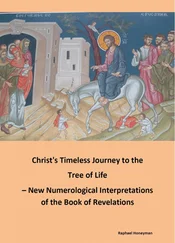Any book like this is the work of many hands and even more brains. Aside from the primary debts listed in the introduction I have incurred many more. Well over fifty people, from current and former politicians and civil servants to ministerial advisers and actors in the welfare state’s drama, have given me time for interviews. Most are acknowledged in the end notes. Some, because they are serving civil servants, cannot be named. A few provided help knowing they might not emerge too happily from the process. To all of them I am grateful. There were others to whom I should have talked, but I simply ran out of time. To these I apologise.
Then there are debts to journalistic colleagues, particularly a string of past education editors of the Independent, Peter Wilby, Ngaio Crequer and Colin Hughes. Along with David Walker of the BBC, Malcolm Dean of the Guardian, and Tony Bevins of the Observer, they lent me their brains, their time and their books, while many others have lent me their copy, conversation and company over the years. Sue Johnson at the Policy Studies Institute library rapidly met requests for the oddest books and articles without raising an eyebrow.
At crucial moments three professorial Peters, Peter Scott of Leeds University, Peter Kemp of York University, and Peter Hennessy of Queen Mary and Westfield College, London University, rescued me by providing references, as did Tony Lynes, Ronnie Bedford and Charles Webster, the official historian of the National Health Service.
As a journalist rather than a historian, I have chiefly relied on others’ gutting of the Public Record Office for the period for which such records are available. Alistair Cooke at Conservative Central Office was, however, generous enough to let me loose in the party’s records in the Bodleian Library up to and including the crucial period of policy formation ahead of the 1979 general election. I am grateful to him for both the access and the permission to refer to documents, and to Dr Sarah Street and Dr Martin Moore for helping me find my way around them.
A dozen or so authors deserve special mention as well as being listed in the bibliography. Nobody can write about Beveridge without owing a huge debt to José Harris’s wonderful, multi-faceted biography of him. David Donnison’s works, but particularly his Politics of Poverty, are inspirational: object lessons in how to write about social policy. I doubt I could have managed to cover education without Brian Simon’s mighty and passionate Education and the Social Order, or Harry Judge’s illuminating A Generation of Schooling, or the sharp analysis and easy writing of Stuart Maclure and Maurice Kogan. Brian Ellis’s official history of pensions from 1955 to 1975 is a starred first example of how to make a horrendously complex subject seem simple and interesting. Nobody should write about the NHS without reading Enoch Powell, Rudolf Klein, and Charles Webster. And anything written by Nicholas Deakin is always stimulating, particularly his 1987 version of The Politics of Welfare. On a broader front, the 1940s are brilliantly served by Peter Hennessy’s Never Again, Paul Addison’s The Road to 1945 and Now the War is Over, and Angus Calder’s The People’s War, while Kenneth O. Morgan’s works, and particularly The People’s Peace, his history of Britain 1945–90, are indispensable – as is Hugo Young’s study of Margaret Thatcher, One of Us.
When I started work on this book in 1993, there was really no substantial modern post-war history available to match Derek Fraser’s fine work The Evolution of the British Welfare State, which takes the story up to Beveridge. Shortly after I started, Rodney Lowe’s The Welfare State in Britain since 1945 appeared. It is completely different in character from this work, much more academic and analytical, concentrating on what he dubs the ‘classic’ welfare state up to 1976 and then moving on to 1990 in less depth. It is an excellent book. But it is not this one. I hope in some small way this will complement that.
Finally there are more personal cheques to sign. Three people – Tony Bevins, David Walker and Julian Le Grand, the Richard Titmuss Professor of Health Policy at the London School of Economics – suffered the whole book in draft. David Willetts read chapters sixteen to nineteen. David Donnison read the housing sections, Dr Gordon Macpherson those on health, Sir George Godber the NHS material up to 1974, and Stuart Maclure the education sections. Frank Field, Sir Patrick Nairne, Sir Geoffrey Otton, Norman Warner, Robin Wendt and (as a prelude to an interview) Shirley Williams all read chapters, or parts of chapters, within their competence, as did two, by convention anonymous, civil servants. All saved me from errors of both fact and judgement, large, small and downright embarrassing. All made it a better book. Some provided criticisms I have not been able to answer. If there is credit, they deserve much of it. The undoubted remaining errors of fact, judgement and tone remain all mine.
Much is due also to John Pawsey, my agent, to Betty Palmer, my copy editor, and to Philip Gwyn Jones, Caroline Hotblack and Kate Harris at HarperCollins for various forms of faith and aid, some beyond the call of duty.
The most personal cheques of all go to Tony for his energising encouragement and superbly pedantic reading of texts and to Jerry, both of whom at times had more faith in this project than I did; to Audrey Maxwell for organisation and memories; to Zoe, Jonathan and Robert for their wonderful forbearance; but most of all and for all of those to Elaine, sans qui…
Preface to the Third Edition
This fills in the missing sixteen years since the second edition of The Five Giants ended. It is probably the last edition. If not, it probably should be.
Not because, however battered parts of it feel at the time of writing, and now at age seventy, the welfare state is at death’s door. That seems less than likely any time soon, given that it is still consuming £500bn of government expenditure, or very roughly a quarter of the country’s income.
Rather, it will probably be the last edition because if this book has any value, some of it lies in the fact that for a fraction over half of its life since 1948 I was lucky enough to report not on all of it, but on key parts of it, as they happened, while working for the Press Association, The Times, the Independent and finally for the Financial Times.
I was never in the room, but I was often outside, eavesdropping, or pressing my nose up against the window. I had a ringside seat. And when I did not, I was working with journalist colleagues who did, including a whole string of excellent political, economic, education, employment, and even housing correspondents, when they existed, over the years.
So not only did I – and I hope the readers – gain hugely from the unending education provided by practitioners, recipients, civil servants, politicians, lobbyists, academics, think-tankers, special advisers and journalistic colleagues, but those relationships allowed me to go back later to query, improve, reshape and, sometimes by anecdote, illuminate parts of the account.
Since 2012 – and the reason this edition should probably be the last – I have still had a seat at the circus. But it has been a few rows further back, as I’ve turned from a journalist into a chronicler – though not a proper historian. And, as time goes by, it will be from a few rows further back, in the cheaper seats. I will know well fewer of the people, inside and outside government, who shape it.
This edition seeks again to find that fine balance between 1066 and All That and Gibbon’s Decline and Fall of the Roman Empire, with enough space in there for readers to stand at least a chance of making up their own minds. Among my favourite moments since the first edition have been when I’ve been approached by foam-flecked young Tory researchers and profoundly over-earnest young Labour ones who have both told me how wonderful it is. The former because ‘it tells you everything that is wrong with the welfare state’ and the latter because ‘it shows exactly why we must defend it’.
Читать дальше
![Nicholas Timmins The Five Giants [New Edition]: A Biography of the Welfare State обложка книги](/books/701739/nicholas-timmins-the-five-giants-new-edition-a-cover.webp)











